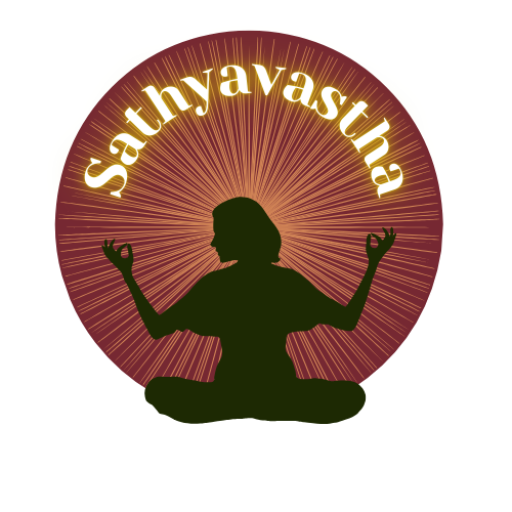Ancient Yoga Philosophies for Modern Life: Balancing Stress, Growth, and Well-Being

Bridging the Gap Between Ancient Wisdom and Modern Life
In today’s fast-paced, tech-driven world, we are constantly bombarded with notifications, deadlines, and social pressures. Compare this to ancient times, where life followed a slower, more mindful rhythm, and the contrast is stark. While our daily routines have evolved dramatically, the challenges of stress, balance, and personal growth remain the same.
The philosophies of yoga, deeply rooted in ancient wisdom, offer timeless solutions to these modern challenges. These teachings, such as the Yamas and Niyamas, provide ethical and personal guidelines for living a balanced, harmonious life. In a world of constant connectivity and social comparison, yoga’s principles serve as a powerful tool for managing emotional well-being, work-life balance, and personal fulfillment.
This article will explore how these ancient yoga philosophies can be applied to contemporary issues, helping us navigate everything from social media stress to maintaining a fulfilling career, while also promoting inner discipline and contentment in the chaos of modern living.
The Yamas: Ethical Principles for Navigating Social Media and Personal Interactions
The Yamas, the first limb of yoga, are ethical guidelines that govern how we interact with others and the world around us. In today’s digital age, where social media shapes much of our interactions, applying these ancient principles can help us navigate challenges like negativity, comparison, and dishonesty.
One of the most important Yamas is Ahimsa, or non-violence. While traditionally it refers to physical actions, in the context of modern life, it can be applied to online behavior. Practicing kindness and compassion online, avoiding hurtful comments or judgment, is a reflection of Ahimsa. It encourages us to create a more positive digital environment where we uplift others rather than engage in harmful rhetoric.
Another key Yama is Satya, or truthfulness. In an era where curated filters and highlight reels dominate social media, the pressure to present a “perfect” version of ourselves can lead to dishonesty, both with others and ourselves. Satya reminds us to embrace authenticity—presenting our true selves without fear of judgment or comparison.
To apply these Yamas in everyday life, practice kindness in your interactions, avoid unnecessary comparisons, and strive for authenticity in both online and offline spaces. By incorporating these principles, you can transform how you engage with others, fostering healthier, more genuine relationships.
The Niyamas: Inner Discipline and Contentment in a World of Distractions
The Niyamas, or personal observances, guide us in cultivating inner discipline and self-growth. In a world dominated by constant notifications, consumerism, and multitasking, practicing these principles can help restore focus and maintain inner peace.
Santosha, or contentment, teaches us to find peace with what we have, rather than constantly striving for more. In a culture of consumerism, where the latest gadget or fashion trend is often seen as a symbol of success, Santosha encourages us to practice gratitude for what we already possess. By focusing on the present and appreciating the small joys of life, we can cultivate a sense of satisfaction that transcends material desires.
Tapas, or discipline, reminds us to stay committed to our personal growth and goals, despite external distractions. Whether it’s the constant stream of social media notifications or the pressure to multitask, Tapas encourages us to create a disciplined routine that prioritizes self-care and progress. Setting boundaries with technology, creating intentional time for deep work, and committing to daily yoga or mindfulness practice can help reinforce this discipline.
To incorporate the Niyamas into your life, begin by practicing gratitude daily, focusing on what you have rather than what you lack. Develop a disciplined routine that limits distractions and creates space for self-reflection and growth. By embracing Santosha and Tapas, you can lead a more peaceful and focused life.
Work-Life Balance: Applying the Concept of Balance and Moderation
In yoga, the concept of Sthira and Sukha—meaning steadiness and ease—represents the balance between effort and relaxation. This philosophy is crucial in today’s hustle culture, where overwork and constant striving often lead to burnout. Applying this principle to modern life can help achieve a healthier work-life balance.
Sthira represents steadiness, or the effort required to meet goals, while Sukha is the ease, or relaxation, that must complement that effort. In the context of work, this means that while hard work and dedication are necessary, they must be balanced with rest and relaxation to maintain long-term productivity and well-being. Overworking without time for rest can lead to stress, exhaustion, and even diminished performance.
To cultivate balance, start by setting boundaries. Establish clear work hours and avoid checking emails or engaging in work-related tasks outside of those hours. Schedule regular breaks throughout the day and engage in activities that promote relaxation, such as yoga, meditation, or simply spending time in nature. Incorporating yoga poses like Tree Pose or Mountain Pose, which emphasize physical balance, can also help foster mental balance.
By applying the principle of Sthira and Sukha, you can create a more harmonious relationship between work and life, ensuring that effort is matched with ease and that you’re not sacrificing well-being for success.
Managing Stress with Pranayama and Meditation
In the fast-paced world of the 21st century, stress—whether from work, social media, or daily responsibilities—can feel overwhelming. Pranayama, or yogic breathing techniques, offers a powerful way to manage this stress by calming the nervous system and improving mental clarity. One such technique is Nadi Shodhana (alternate nostril breathing), which balances the left and right hemispheres of the brain, helping to reduce anxiety and promote a sense of calm. This practice is particularly effective for managing workplace stress and digital overload by restoring mental balance.
Another useful technique is Ujjayi breath (victorious breath), a slow, controlled breathing method that encourages relaxation by focusing on long exhales. This breath creates a calming sound that helps soothe the mind, making it an excellent tool for reducing workplace stress and calming racing thoughts.
Incorporating short meditative practices into your daily routine can help you build emotional resilience. A simple 5-minute meditation each morning or evening can sharpen focus and alleviate stress. Combining breathwork with mindfulness can prevent burnout and increase emotional balance, offering a simple yet effective way to navigate modern life’s stresses.
Personal Growth: The Path of Svadhyaya (Self-Study) and Modern Self-Reflection
The yoga principle of Svadhyaya, or self-study, emphasizes the importance of introspection and personal growth. In today’s world, where distractions like social media and constant connectivity often cloud our self-awareness, Svadhyaya is more relevant than ever. This ancient practice encourages us to take a step back, reflect on our actions, and observe our thoughts without judgment. In doing so, we gain deeper insights into our emotions and behaviors, which are crucial for personal development.
Mindfulness and self-reflection can help us develop greater self-awareness. By observing how we react to situations, we begin to identify patterns that may hold us back. Modern tools like journaling or guided meditation can enhance this practice, offering structured ways to process emotions and thoughts.
For those looking to grow, practicing self-inquiry can be as simple as taking a few minutes each day to reflect on your actions, decisions, and feelings. Journaling about your daily experiences or meditating on your emotional state helps sharpen your self-awareness, allowing you to make more conscious decisions and progress in your personal development.
Timeless Wisdom for a Balanced Life
The ancient philosophies of yoga, including the Yamas, Niyamas, and the concept of balance, offer timeless guidance for managing modern challenges. Whether you’re struggling with work-life balance, social media stress, or personal growth, these teachings provide tools to navigate life more mindfully and peacefully.
By integrating these principles into your daily routine—whether through mindful breathing, meditation, or self-reflection—you can achieve greater mental, emotional, and spiritual well-being. Yoga’s true power extends beyond physical poses; it transforms how we think, feel, and interact with the world.
As we apply these ancient lessons to our lives, we not only improve our well-being but also find a deeper sense of purpose, clarity, and connection with ourselves and others.



